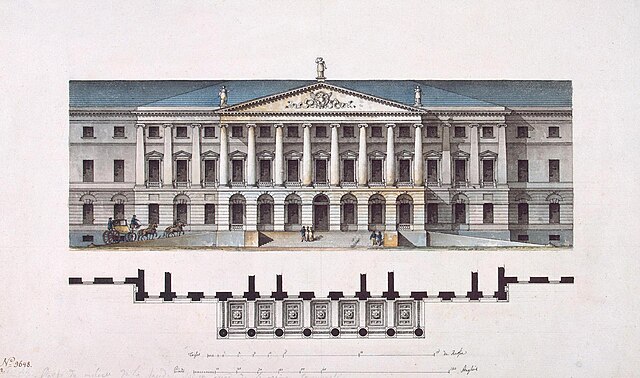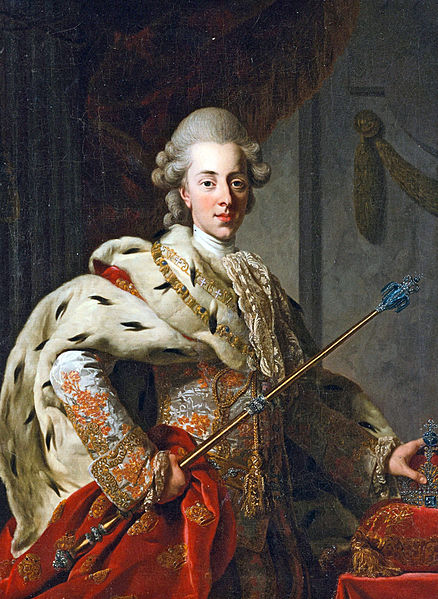The Russian Age of Enlightenment was a period in the 18th century in which the government began to actively encourage the proliferation of arts and sciences, which had a profound impact on Russian culture. During this time, the first Russian university was founded, a library, a theatre, a public museum, as well as relatively independent press. Like other enlightened despots, Catherine the Great played a key role in fostering the arts, sciences, and education.
The national Enlightenment in the Russian Empire differed from its Western European counterpart in that it promoted further modernization of all aspects of Russian life and was concerned with abolishing the institution of serfdom in Russia. Russian Enlightenment didn't promote any changes for separation of church and state. Pugachev's Rebellion and the French Revolution may have shattered the illusions of rapid political change, but the intellectual climate in Russia was altered irrevocably. Russia's place in the world was debated by Denis Fonvizin, Mikhail Shcherbatov, Andrey Bolotov, Alexander Radishchev, and Ivan Boltin; these discussions precipitated the divide between the radical, western, conservative and Slavophile traditions of Russian thought. Intellectuals often used the term prosveshchenie, promoting piety, erudition, and commitment to the spread of learning.

Mikeshin's Monument to Catherine the Great after the Alexandrine Theatre in St. Petersburg
View of Ivan Shuvalov's art gallery
Quarenghi's design for the Smolny Institute
Parasha Zhemchugova, a serf actress-turned-countess.
Enlightened absolutism, also called enlightened despotism, refers to the conduct and policies of European absolute monarchs during the 18th and early 19th centuries who were influenced by the ideas of the Enlightenment, espousing them to enhance their power. The concept originated during the Enlightenment period in the 18th and into the early 19th centuries. An enlightened absolutist is a non-democratic or authoritarian leader who exercises their political power based upon the principles of the Enlightenment. Enlightened monarchs distinguished themselves from ordinary rulers by claiming to rule for their subjects' well-being. John Stuart Mill stated that despotism is a legitimate mode of government in dealing with barbarians, provided the end be their improvement.
Peter I of Russia (1682–1725)
Catherine II of Russia
Charles III of Spain
Christian VII of Denmark








